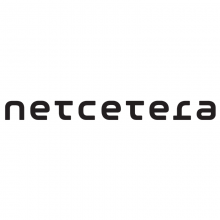| Professor |
Course |
Semester |
ECTS |
|
| 1 | assoc. prof. Ana Madevska Bogdanova, assoc. prof. Marija Mihova, assist. prof. Anastas Mishev, assist. prof. Boro Jakimovski |
Advanced algorithms |
IX |
6 |
| 2 | assist. prof. Boro Jakimovski, elect. assist. prof. Jasen Markovski | Formal methods | IX | 6 |
| 3 | prof. Vancho Kusakatov, prof. Margita Kon-Popovska, assist. prof. Vesna Dimitrievska Ristovska |
Optimization |
IX |
6 |
| 4 |
Elective course |
IX |
6 |
|
| 5 |
Elective course |
X |
6 |
|
| 6 | Elective course | X | 6 | |
| 7 | Elective course | X | 6 |
Computer networks and e-technologies (4+1)
Computer networks and e-technologies (4+1)
- Offered by: Ss. Cyril and Methodius University - Skopje, Faculty of Computer Science and Engineering – FCSE
- Study programme: Computer networks and e-technologies master studies
- Scientific-research field: Engineering and Technology
- Category: Electrical engineering, Electronic engineering, Information engineering
- Sub-category: Communication engineering and systems
- The master studies cycle consists of 60 ECTS.
- Study duration: 2 semesters
- One academic year is divided into two semesters with 30 weeks each (1 semester = 15 weeks)
- The first semester is comprised of courses only, while in the second semester there are fewer courses and the rest of the time is devoted to the final project, i.e. master thesis.
- Enrollment requisites: fully completed undergraduate study cycle with a minimum of 240 ECTS with a degree in the fields of computer science and/or computer engineering. In the case of having an appropriate degree with less than 240 ECTS, the student has to enroll the introductory courses first.
- Introductory courses: only for students that have obtained less than 240 ECTS. A number of differential introductory courses are offered in order to level up the required competences. Upon successful completion of the introductory courses, the student has the right to continue with the formal master study programme courses in the second year of studies.
- First semester: 3 compulsory courses + 2 elective courses (one of the elective courses can be chosen from the courses list offered by the University)
- Second semester: 1 compulsory course + 1 elective course (can be chosen from the courses list offered by the University only in the event that this opportunity has not been used in the previous semester) + final master thesis project that equals 18 ECTS.
- 1 ECTS = 30 hours of work load.
- Contact hours per week is 4.
| Professor |
Course |
Semester |
ECTS |
|
| 1 | Academian prof. Ljupco Kocarev |
IX |
6 | |
| 2 | assoc. prof. Dimitar Trajanov | E-business | IX | 6 |
| 3 |
Mandatory general-education course |
IX |
6 |
|
| 4 |
Elective course |
IX |
6 |
|
| 5 |
Elective course |
IX |
6 |
|
| 6 | assist. prof. Sonja Filiposka | Next generation networks | X | 6 |
| 7 | Elective course | X | 6 | |
| General-education courses | ||||
| 1 | Research methods and writing techniques | IX | 6 | |
| 2 | Project management | IX | 6 | |



